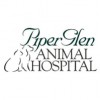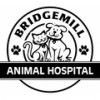
Stony Hill Equine is a full service mobile veterinary practice serving the greater Charlotte area, offering a comprehensive range of services. As a lifelong competitive rider, Dr. Leslie Kinnin, DVM specializes in performance horses and sports medicine. With the most state of the art digital imaging and ultrasound equipment and certifications in chiropractic and acupuncture, Stony Hill strives to give the horse and owner the best possible experience in all of your veterinary needs.
It is important to work as a team in this business. As a farrier, Communication with the veterinarian is paramount. Dr Kinnin goes above and beyond in working with this. I also shoe her personal horses and she takes top notch care of them and she treats your horse as if it was her own. Leslie Kinnin is the vet I've been looking for in the Charlotte area for years!
She is amazing at diagnosing a lameness in a horse and suggesting how to solve the problem! Finally a vet who can do it all! Not only a talented vet but also a competitive amateur jumper rider!
It is important to work as a team in this business. As a farrier, Communication with the veterinarian is paramount. Dr Kinnin goes above and beyond in working with this. I also shoe her personal horses and she takes top notch care of them and she treats your horse as if it was her own. Leslie Kinnin is the vet I've been looking for in the Charlotte area for years!
She is amazing at diagnosing a lameness in a horse and suggesting how to solve the problem! Finally a vet who can do it all! Not only a talented vet but also a competitive amateur jumper rider!
Services
Leslie is from Charlotte, NC and currently lives in Waxhaw, NC with her husband, daughter, and countless four-legged family members.
Leslie developed a deep love of horses from an early age, inspiring both her riding and veterinary careers.
Still active in the hunter/humper circuit, Leslie has a unique understanding and interest in all things lameness and performance.
After graduating from NC State Veterinary School in 2014, Leslie completed a large animal surgical internship at the University of Georgia.
Leslie developed a deep love of horses from an early age, inspiring both her riding and veterinary careers.
Still active in the hunter/humper circuit, Leslie has a unique understanding and interest in all things lameness and performance.
After graduating from NC State Veterinary School in 2014, Leslie completed a large animal surgical internship at the University of Georgia.
Stony Hill Equine Mobile Veterinary Services looks forward to serving you and your horses.
We strive to provide compassionate, cost-effective equine veterinary care to help ensure your horse's general wellness as well as to treat short-term and chronic conditions.
Our computerized appointment systems allows for great efficiency.
Call our office, and our receptionists will do their best to find a convenient time for you.
If you are having an emergency, call us, and we will work together to get you help as quickly as possible.
We strive to provide compassionate, cost-effective equine veterinary care to help ensure your horse's general wellness as well as to treat short-term and chronic conditions.
Our computerized appointment systems allows for great efficiency.
Call our office, and our receptionists will do their best to find a convenient time for you.
If you are having an emergency, call us, and we will work together to get you help as quickly as possible.
Horse breeding is a multi-million dollar international industry, with some breeders earning millions in sire rights by breeding award-winning male horses.
For purebred horses, careful selection of the male parent (the "sire") and the female parent (the "dam") is essential to successful breeding.
From conception to foaling, horse breeding today is carefully managed through modern technology.
Whether you are breeding horses for racing, equestrian competition or the family farm, a firm understanding of the breeding and foaling process will ensure a successful outcome.
For purebred horses, careful selection of the male parent (the "sire") and the female parent (the "dam") is essential to successful breeding.
From conception to foaling, horse breeding today is carefully managed through modern technology.
Whether you are breeding horses for racing, equestrian competition or the family farm, a firm understanding of the breeding and foaling process will ensure a successful outcome.
Dental care for horses differs significantly from that of humans or even cats and dogs.
Due to their vegetarian diet and manner of eating, a horse's teeth work more like a gristmill, constantly grinding and mashing down their food.
The horse's teeth are therefore designed to keep growing as an adaptation to the manner in which they eat.
Therefore, horses usually need a dental checkup every six months to have their teeth floated (evened out) in order for the horse's bite to remain healthy, and so that their food is evenly ground for healthy swallowing and digestion.
Due to their vegetarian diet and manner of eating, a horse's teeth work more like a gristmill, constantly grinding and mashing down their food.
The horse's teeth are therefore designed to keep growing as an adaptation to the manner in which they eat.
Therefore, horses usually need a dental checkup every six months to have their teeth floated (evened out) in order for the horse's bite to remain healthy, and so that their food is evenly ground for healthy swallowing and digestion.
We like to think of our horses as big, strong and invincible, but there are some common horse health problems that can become dangerous if not promptly diagnosed and treated.
It is important for you to be able to recognize the symptoms of potential health issues quickly.
Lameness-The number one complaint for horses, lameness can be caused by a long list of problems.
Know your horse's healthy gait and be able to recognize any changes in it quickly.
Even head bobbing can be a sign of lameness as your horse tries to compensate for pain in other areas of its body.
It is important for you to be able to recognize the symptoms of potential health issues quickly.
Lameness-The number one complaint for horses, lameness can be caused by a long list of problems.
Know your horse's healthy gait and be able to recognize any changes in it quickly.
Even head bobbing can be a sign of lameness as your horse tries to compensate for pain in other areas of its body.
Reviews

Be the first to review Jennifer Fordham.
Write a Review


